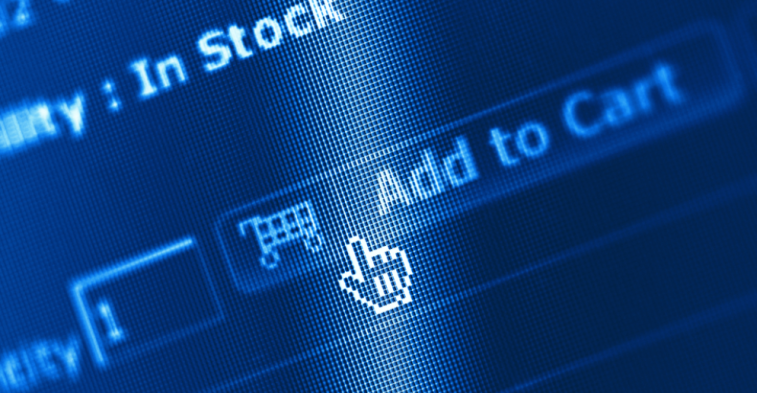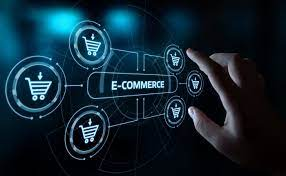Introduction:
In the fast-paced realm of technological trends shaping the future of e-commerce and online retail, staying ahead means embracing and adapting to the latest trends. From enhancing user experiences to optimizing operational efficiency, these trends are reshaping the landscape of digital commerce. In this blog, we’ll delve into the key technological trends shaping the future of e-commerce that are steering the industry.
Table of Contents
Mobile Commerce Dominance
As smartphones become ubiquitous, the trend of mobile commerce is reaching new heights. Mobile devices are no longer just tools for browsing; they are complete shopping platforms. From responsive websites to dedicated shopping apps, businesses are increasingly focusing on delivering seamless mobile experiences. The future of technological trends shaping the future of e-commerce hinges on the optimization of platforms for mobile, catering to users who prefer the convenience of shopping on the go.

AI-Powered Personalization
Artificial Intelligence (AI) is transforming the way consumers interact with online stores. Through machine learning algorithms, technological trends shaping the future of e-commerce platforms can analyze user behavior and preferences to provide highly personalized shopping experiences. Whether it’s recommending products based on past purchases or predicting future needs, AI is making online shopping more intuitive and tailored to individual preferences.
Voice Commerce Integration
The rise of virtual assistants like Amazon’s Alexa and Google Assistant has given birth to the era of voice commerce. Users can now make purchases, add items to their carts, and inquire about product details using voice commands. Technological trends shaping the future of e-commerce platforms are adapting to this trend by implementing voice-activated features, making the shopping experience hands-free and more accessible.
AR and VR Integration
Augmented Reality (AR) and Virtual Reality (VR) technologies are breaking new ground in online retail. AR enables users to visualize products in their real-world environment before making a purchase decision. VR, on the other hand, offers immersive shopping experiences, allowing customers to virtually explore stores and interact with products. These technologies bridge the gap between online and in-store shopping, providing a more engaging and interactive experience.
Blockchain for Secure Transactions
Ensuring the security of online transactions is paramount, and blockchain technology is emerging as a game-changer in this regard. By providing a decentralized and tamper-resistant ledger, blockchain enhances the security and transparency of financial transactions in technological trends shaping the future of e-commerce. As concerns about data breaches and fraud loom large, integrating blockchain into payment systems is becoming a key trend in securing the future of online retail.

Chatbots Enhancing Customer Service
Customer service is a crucial aspect of technological trends shaping the future of e-commerce, and chatbots are increasingly becoming an integral part of the customer support landscape. These AI-driven bots can handle routine queries, provide product information, and even assist in the purchasing process. By offering instant responses and round-the-clock availability, chatbots contribute to improved customer satisfaction and operational efficiency.
Social Commerce Integration
Social media platforms are not just for connecting with friends; they are evolving into powerful sales channels. Social commerce involves the integration of shopping features directly into social media platforms. With features like Instagram Shopping and Facebook Marketplace, users can discover, browse, and purchase products without leaving their favorite social apps. This trend is blurring the lines between socializing and shopping, creating a more seamless buying experience.
Data-Driven Decision-Making
Data has become a goldmine for technological trends shaping the future of e-commerce businesses, enabling them to make informed decisions and predictions. By leveraging big data analytics, businesses can understand customer behavior, optimize marketing strategies, and streamline operations. The future of technological trends shaping the future of e-commerce relies heavily on the ability to harness and interpret data to gain a competitive edge in a crowded market.
Subscription-Based Models
Subscription-based technological trends shaping the future of e-commerce models are gaining traction, offering customers a convenient and predictable way to access products and services. From monthly curated boxes to streaming services, the subscription model fosters customer loyalty and provides businesses with a steady revenue stream. This trend is reshaping traditional retail paradigms and creating new opportunities for businesses to build long-term relationships with their customers.

Green Tech and Sustainability
As environmental consciousness grows, so does the demand for sustainable and eco-friendly practices in technological trends shaping the future of e-commerce. From eco-packaging to carbon-neutral shipping, businesses are incorporating green technologies to reduce their environmental impact. Consumers are increasingly prioritizing sustainability, and technological trends shaping the future of e-commerce platforms that embrace green tech are likely to gain a competitive edge in the future.
Conclusion : how technological trends shaping the future of e-commerce
The future of technological trends shaping the future of e-commerce is an exciting intersection of technology, convenience, and innovation. As businesses continue to adapt to these trends, consumers can expect more personalized, secure, and immersive online shopping experiences. From the rise of mobile commerce to the integration of blockchain and AI, the journey of online retail is evolving, promising a more connected and efficient marketplace for all. Embracing these technological trends shaping the future of e-commerce is not just a choice; it’s a strategic imperative for businesses looking to thrive in the dynamic world of online retail.

